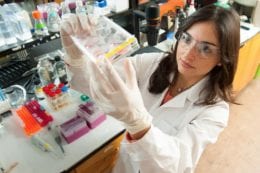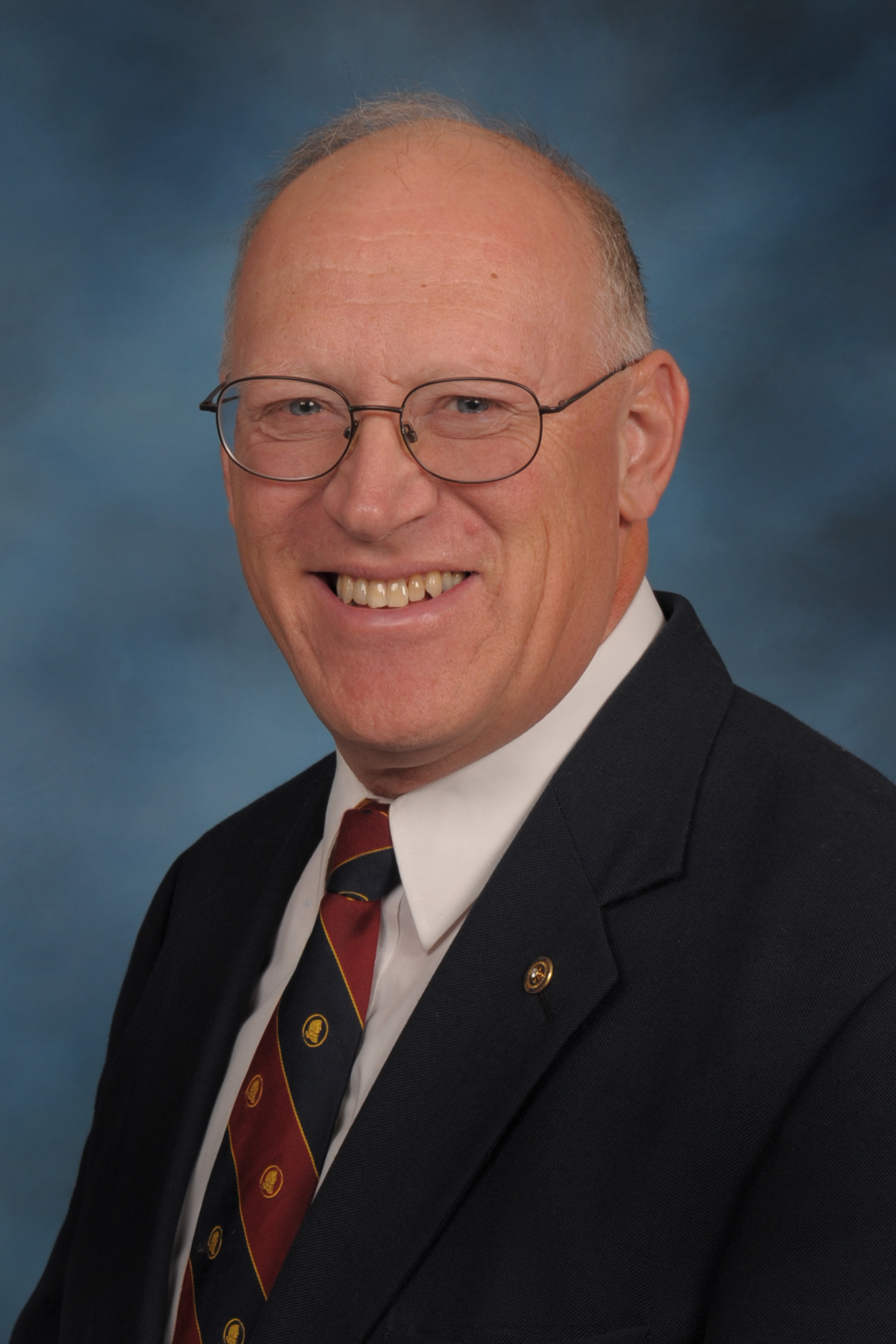“We can deliver.” In the business community, it is vital that a company delivers on its promises. Delivery is important in other ways as well. What if a company could find a better way to deliver a medicine or treatment to a particular target in cells inside the body? Today we’ll learn about an innovative Kansas company which is using amazing technology to accomplish such a goal in medicine, animal and plant health.

Randall Tosh is CEO of Phoreus Biotechnology, Inc. in Olathe, Kansas. He grew up on a farm in northeast Kansas and got a degree in agriculture from K-State. He worked in international marketing for the State of Kansas and Commonwealth of Australia before becoming executive vice president of an animal health technology company in Olathe.
In that capacity, he met Dr. John Tomich, professor of Biochemistry and Molecular Biophysics and director of the Biotechnology/Proteomics Core Facility at K-State. “He was brilliant,” Randall said.
Dr. Tomich helped with experimental formulations of various products. In 2017, he mentioned to Randall that he had developed and patented a particular technology with a lot of promise. “Would you be interested in this technology?” he asked. As Randall explored the possible applications of the technology, he became more and more interested.
The trademarked name for this type of technology is Branched Amphipathic Peptide Capsules, or BAPC for short. BAPC technology works at the nanoscopic scale, meaning one billionth of a meter. At this incredibly tiny scale, Dr. Tomich and his researchers found that these capsules could function as nanocarriers to carry small molecules, proteins and nucleic acids into cells, for example. Essentially, this represented a new drug delivery system. The potential impact of this technology was enormous.
In fall 2017, Randall and his partners entered into conversations with the KSU Research Foundation about getting licensed to commercialize the technology. “Lindsay Biggs and Christopher Brandt (at the research foundation) have been fantastic,” Randall said. When licensing appeared certain in February 2018, Randall and partners formed a new business to implement the commercialization. The business was called Phoreus Biotechnology, Inc. It is now a commercial tenant at K-State-Olathe.
“The name Phoreus comes from the Greek, meaning `to carry’ or `to bear,’” Randall said. “Our technological platform works as a carrier to make other ingredients more effective and have more persistency,” Randall said.
In other words, BAPC is not the active ingredient in a given product, but it provides a new and more effective way to deliver the active ingredient to where it needs to be. These carriers are infinitesimal in size and are programmable on a scale of nanometers.
What could all this mean? The Phoreus website says BAPC technology can “offer substantially increased efficacy in the creation and delivery of novel vaccines, cancer therapies, alternative antibiotics and biopesticides for improved human, animal, plant and environmental health around the world.”
Currently, there are some classes of drugs which have difficulty being absorbed in the body. BAPC technology can overcome those obstacles. Furthermore, BAPC technology can deliver an ingredient with negligible cytotoxicity or damage to other cells.
In cancer therapy, for example, BAPC technology could allow the treatment to be targeted to cancerous cells while not disturbing the normal cells. In pest control, it could target the treatment at the parasite while leaving other insects unharmed.
“This is a fantastic technology,” Randall said. “Our company will spend research dollars here and employ people here as we grow,” he said. Such investment is important to him as a native Kansan. He grew up on the Tosh family farm which was located between the rural communities of Nortonville, population 613, and Effingham, population 588 people. Now, that’s rural.
Phoreus Biotechnology is now raising investor funding and seeking needed regulatory agency approvals. For more information, see www.phoreusbiotech.com.
“We can deliver.” That claim is important for any company, but this company is finding new ways to deliver medicines and treatments more effectively at the cellular level. We salute Randall Tosh, Dr. John Tomich and all those involved with Phoreus Biotechnology for making a difference with technological innovation which can deliver.
Audio and text files of Kansas Profiles are available at http://www.kansasprofile.com. For more information about the Huck Boyd Institute, interested persons can visit http://www.huckboydinstitute.org.
